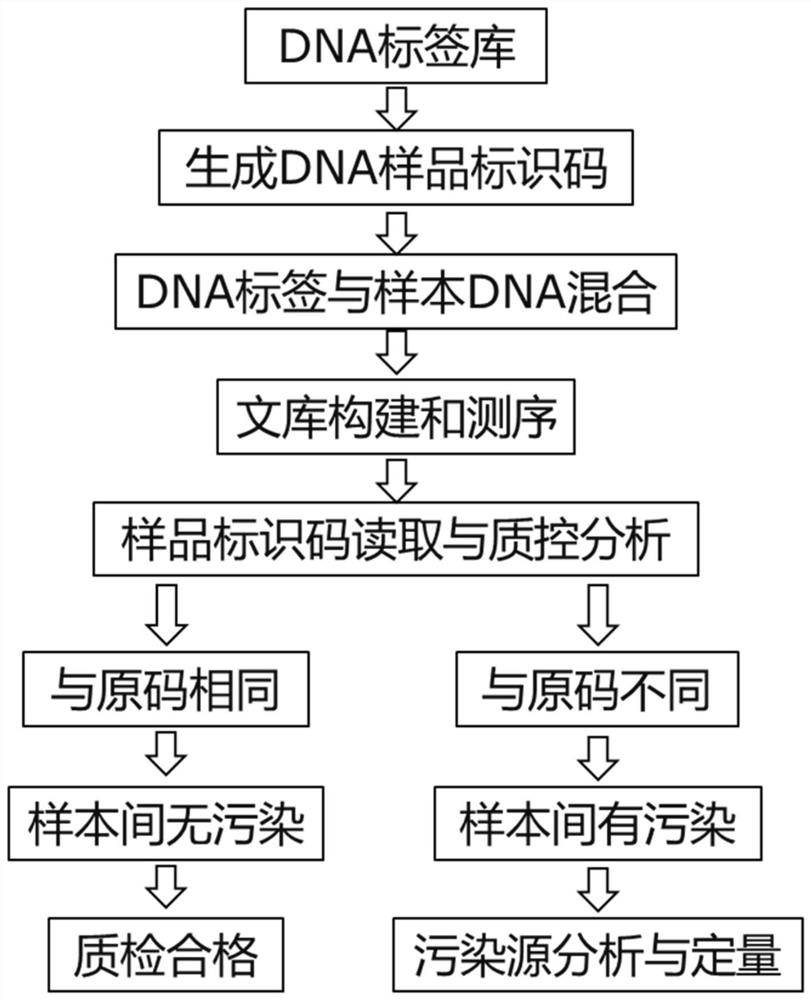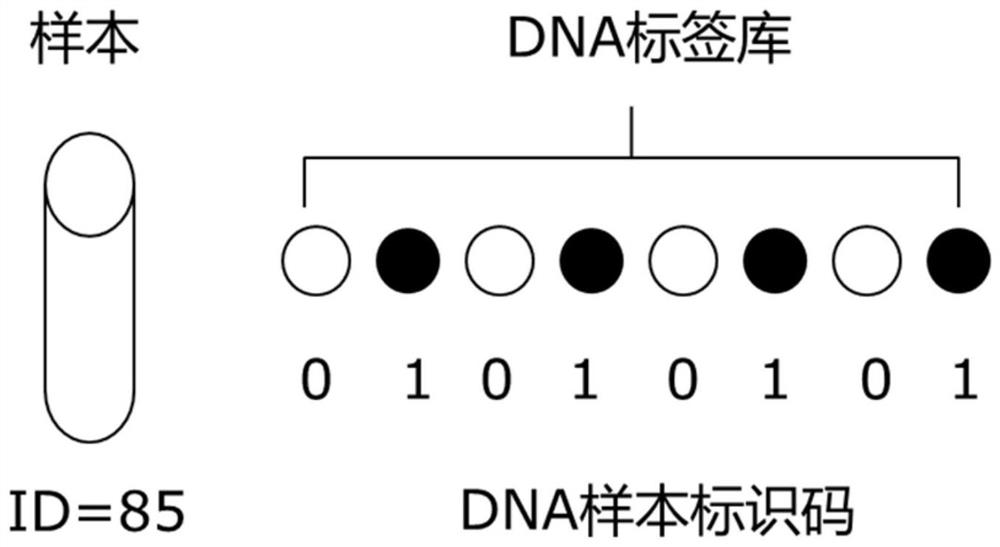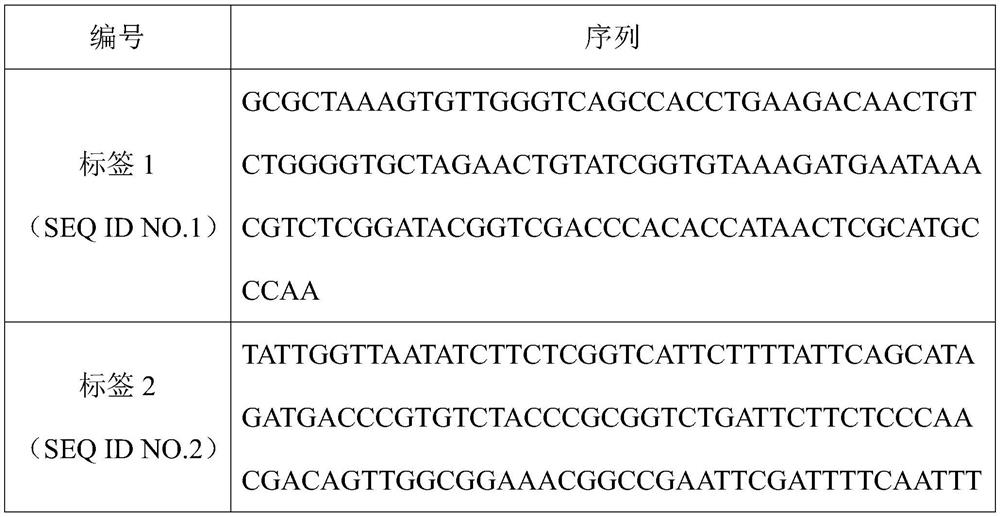A method for identifying sequencing samples and its application
A sequencing and sample technology, applied in the field of high-throughput sequencing, can solve the problem of high cost, achieve the effect of simple method, large number of numbers, and qualitative and quantitative analysis
- Summary
- Abstract
- Description
- Claims
- Application Information
AI Technical Summary
Problems solved by technology
Method used
Image
Examples
Embodiment 1
[0045] figure 1 Shown is a flowchart of a method for analyzing a sequenced sample, the method comprising the following steps:
[0046] Step 110, constructing a DNA tag library, the homology of the DNA tag library and the sequencing sample library is 5%;
[0047] Step 120, generating the binary identification code number of the sequencing sample, and determining the identification sequence according to the binary identification code;
[0048] Step 130, the identification sequence is mixed with the sequencing sample;
[0049] Step 140, library construction and sequencing;
[0050] Step 150, identification sequence reading and quality control analysis;
[0051] Step 160, if the identification sequence is the same as the original code, then there is no pollution between the samples, and the quality inspection is passed; if the identification sequence is different from the original code, then there is pollution between the samples, and the pollution source analysis and quantificat...
Embodiment 2
[0052] Example 2 Construction of the Identification Sequence
[0053] (1) The sequencing sample library contains 256 human sequencing samples, and the sequencing samples are numbered with an 8-digit binary identification code;
[0054] (2) Construct the DNA tag library shown in Table 1, and the homology between the DNA tag library and the sample is 5%.
[0055] Table 1 contains the DNA tag library of 8 120bp DNA sequences
[0056]
[0057]
[0058]
Embodiment 3
[0059] Example 3 Construction of library and high-throughput sequencing
[0060] In this example, the library construction is performed on the cfDNA sample with ID 85, such as figure 2 As shown, the binary identification code of the human-derived sequencing sample with ID 85 is 01010101.
[0061] (1) Add Tag 1, Tag 3, Tag 5, and Tag 7 to 30ng cfDNA sample in an amount of 3×10 -4 ng, mix evenly, and carry out library construction;
[0062] (2) After the cfDNA is end-repaired, the 3' end is subjected to an A-tail ligation reaction, and the sequencing adapter is subjected to a T-tail ligation reaction, and the sequencing adapter is connected to the target cfDNA fragment by the principle of complementary base pairing;
[0063] (3) Use the pan-cancer specific probes independently developed by Shenzhen Hypros Biotechnology Co., Ltd. to capture related genes and tag library DNA sequences. The ends of the probes are modified with biotin. After the DNA and the probe are hybridized ...
PUM
 Login to View More
Login to View More Abstract
Description
Claims
Application Information
 Login to View More
Login to View More - R&D
- Intellectual Property
- Life Sciences
- Materials
- Tech Scout
- Unparalleled Data Quality
- Higher Quality Content
- 60% Fewer Hallucinations
Browse by: Latest US Patents, China's latest patents, Technical Efficacy Thesaurus, Application Domain, Technology Topic, Popular Technical Reports.
© 2025 PatSnap. All rights reserved.Legal|Privacy policy|Modern Slavery Act Transparency Statement|Sitemap|About US| Contact US: help@patsnap.com



